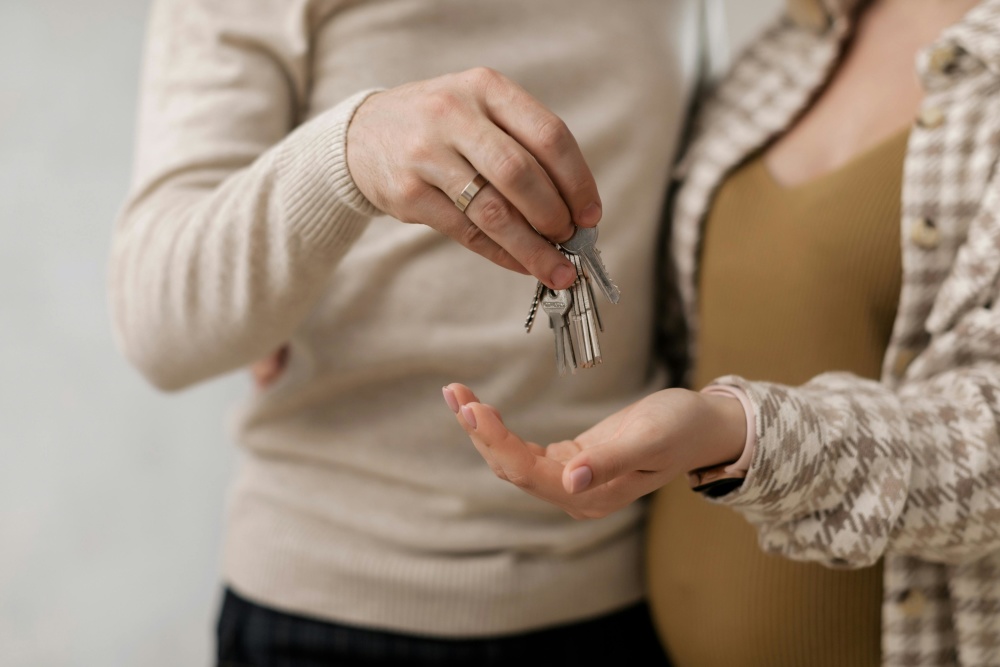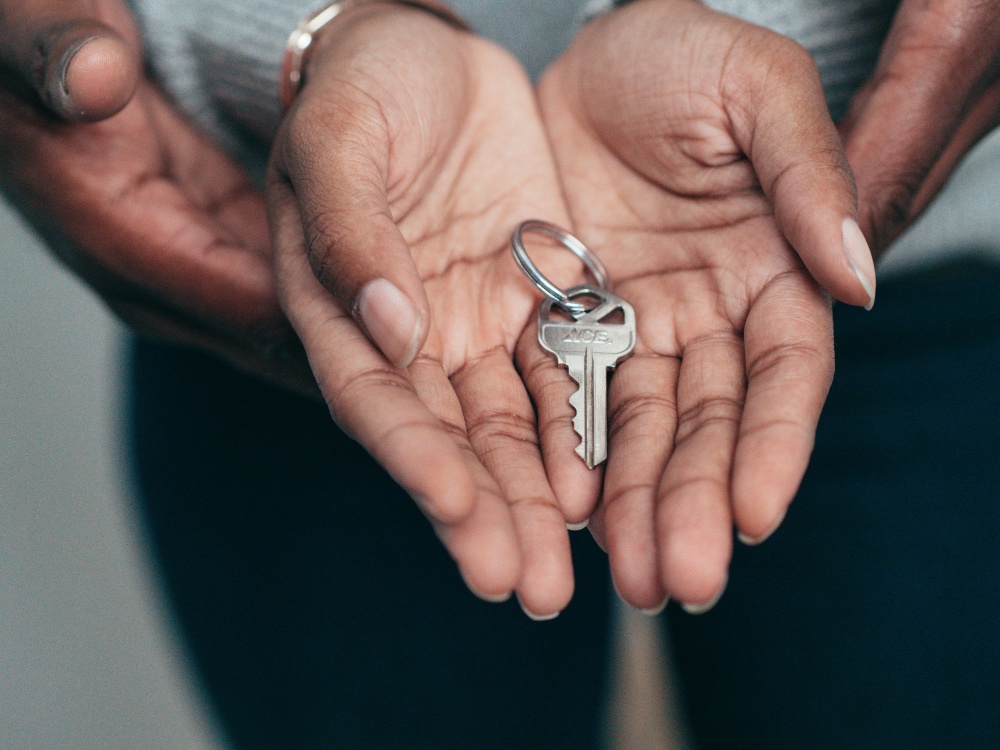Updated February 28, 2024
Key Money in Japan: What's The Deal?
If you’ve ever been apartment hunting in Japan, chances are you’ve already encountered the term key money.
If not, "key money" is essentially a one-time additional payment you make to the landlord when signing a rental contract. Usually in addition to a standard deposit.
Key money, or reikin (礼金), is a common tradition you’ll likely come across in Japan. But how does it work? Do you really have to pay key money in Japan? Is there a logical reason for paying key money, or is it just an obsolete tradition?
Below, I’ll demystify the concept of key money in Japan and answer some common questions regarding it. I’ll also explain how to avoid paying key money whenever you can.
Let’s dive in.
What Is Key Money?
An often confusing concept for foreigners, key money has long been a part of Japan’s house-hunting culture. It’s essentially a one-time, non-refundable payment a new tenant has to make to the landlord when signing the contract.
Key money is usually paid in the amount of one or two rents, depending on how attractive or sought-after a listing is. This is because key money’s origins stem from a housing shortage, which I’ll get to in a bit.
Key money is usually paid before a tenant moves in, as it’s seen as a payment for handing over the keys.
Although it doesn’t make much sense, landlords are mostly able to do this where the housing market is tight, especially if they own places with high-end amenities and equipment.
But, how did this concept first come about? Here’s a little background.

Key Money: Historic Background
While it seems like a generations-long tradition, the concept of key money is “said to have been” fabricated only after World War II.
During this time, there was a serious housing shortage in Japan, so allegedly, the high demand not only increased the rent prices but allowed landlords to charge an additional one-time fee as well.
Looking back, it seems realistic, as it still feels like just another method of extorting more money from those who need housing, benefiting from their desperation today.
Alternatively, there are other stories about how the key money concept emerged. One story bases it on the housing shortage and panic that came with the Great Kanto Earthquake of 1923.
Another story claims that the key money was started by the parents of children who moved to big cities from rural areas. It’s speculated that parents would pay this extra money to keep the landlord happy, hoping that their children will be well taken care of in the big city.
In all cases, key money seems to be a way to “make the landlord happy” or to bribe them in a way.
So, expect to be asked a hefty amount of key money for a place that’s well-equipped or sought-after. That said, the key money itself doesn’t cover any damages. It’s, as I mentioned, non-refundable, and exists alongside deposits.
Is There a Security Deposit in Japan?
Yes, the concept of security deposits is alive and well in Japan, and it exists alongside key money. In fact, in certain cases, it may even be more than a one-time payment like you may be accustomed to.
Security deposits, known as shikikin (敷金), are one-time payments that are paid in the amount of 1-2 month’s rent. The law assures that this money will be returned to the tenants at the end of their rental contracts, minus the cleaning fees and the damages that fall outside of usual wear and tear, of course.
However, just like reikin or key money, which is justified by high demand, another concept exists in Japan that allows tenants to charge multiple deposits. This is called Kōshinryō (Koushin-ryou, 更新料), and is an additional deposit that’s paid when a rental contract is renewed or extended.
If your contract includes a renewal fee, you’ll pay around one month’s rent to extend (renew) it. A regular lease in Japan is for a limited period of two years, so, once this period ends, you’ll have an option to renew your lease by paying the renewal fee if there’s a Kōshinryō clause in your contract.
Key Money in Today’s Japan
Yes, key money is sadly alive and well in Japan’s housing market today, but since it’s an unattractive ask for potential tenants, many real estate agencies post listings that don’t require key money.
Besides, it’s not something every tenant can ask for, as not all properties are equally popular. So, it’s safe to say that the rental properties that do require key money only make up about 50% of the available listings on the market.
Of course, those who move to Japan from overseas tend to choose Tokyo as a destination, which is a big city that sets itself apart from the rest of Japan in terms of lifestyle, so let’s briefly talk about the key money situation there.
Key Money in Tokyo: The Capital’s Stance on The Matter
If you’re looking for a place without key money, Tokyo may statistically not be the best place for you. It’s reported that the city boasts higher numbers when it comes to the popularity of reikin, with about 60% of properties requiring it.
Still, once you get a bit further away from the most central areas where the rent prices are high anyway, I’d say you’ll have better luck, especially with many real-estate agencies offering specifically “no key money” apartments.
All that said, remember that if a place is insanely popular on paper and is in a very good location in Tokyo, for example, yet it requires no key money, there’s good reason to suspect it may be undesirable due to other reasons.
Another point to keep in mind when it comes to key money in Tokyo is that key you can expect to pay closer to the higer average in some of the popular areas. That said, key money is often the easiest to negotiate on.
For instance, during off-peak periods like summer, it’s possible to negotiate and get a discount on the key money, and get it down to half a month’s rent.
How to Avoid Key Money
As I mentioned, if you don’t want to pay key money, you may not have to. Not all rental properties require key money, after all. Besides, there are still a few things you can do even if key money is involved in a listing you like.
Method #1: Finding Apartments Without Key Money
The best way to avoid key money is, of course, looking for a place that doesn’t require it. This isn’t too hard, as many house-hunting websites in Japan nowadays have a filter for key money. You can simply filter the listings out accordingly.
In addition, there are also specific websites where none of the listings require key money, like UR Housing.

Method #2: Negotiate Your Way Out
If a listing you’re interested in requires you to pay key money, you may be able to negotiate and get a discount, or have it removed altogether.
As a foreigner, you’ll need your real estate agent’s help in this. As it’s a common thing to do in Japan, they’ll be happy to take any offer you might make on your behalf to the property owner.
Still, keep in mind that asking your agent to negotiate for a very popular apartment will probably be in vain, not to mention a bit awkward.
A good tip for knowing when to negotiate is finding out whether the property has been vacant for a long time, or scouting it out to see if it needs a lot of maintenance work. You can then leverage this information to negotiate your way out of the key money, or at least get a discount.
Method #3: Short-Term Rentals Can Be Life Savers
If you still feel like you have no luck finding an apartment with no key money, and are dead-set on finding one without it, you still can. In fact, that’s what short-term rentals are for!
Many people, especially expats, use short-term rental services to set themselves up in a new city and find a permanent apartment they truly like while they have a place to stay.
So, if you absolutely do not want to pay key money and want to wait until you find an apartment on your terms, a short-term rental can be the best option for you until then.
Alternatively, an AirBnB can also do the trick, even though it may end up being more expensive for longer stays. I have a detailed guide on Airbnb in Japan, so make sure to check it out after you’re done here.
Final Word on Key Money

As I said, key money is a reality of the housing market in Japan. It’s an old practice that’s still so popular that about 50% of the listings on the market require it.
Generally speaking, you can expect to pay one to two month’s rent in most cases.
While it’s common, you can still find a place without paying key money in Japan. Some agencies specifically offer “no key money” apartments. Besides, negotiating on key money is also quite common, and you may be able to get a discount even if you can’t completely avoid it.
Lastly, if you look for properties that may be less desirable to others for reasons that don’t matter to you, you can find pretty good places without having to pay any key money.
And with that, you now have all the essentials when it comes to key money. If you want to learn more about the housing landscape in the country, head on over to my post on house hunting in Japan.
Get Job Alerts
Sign up for our newsletter to get hand-picked tech jobs in Japan – straight to your inbox.


